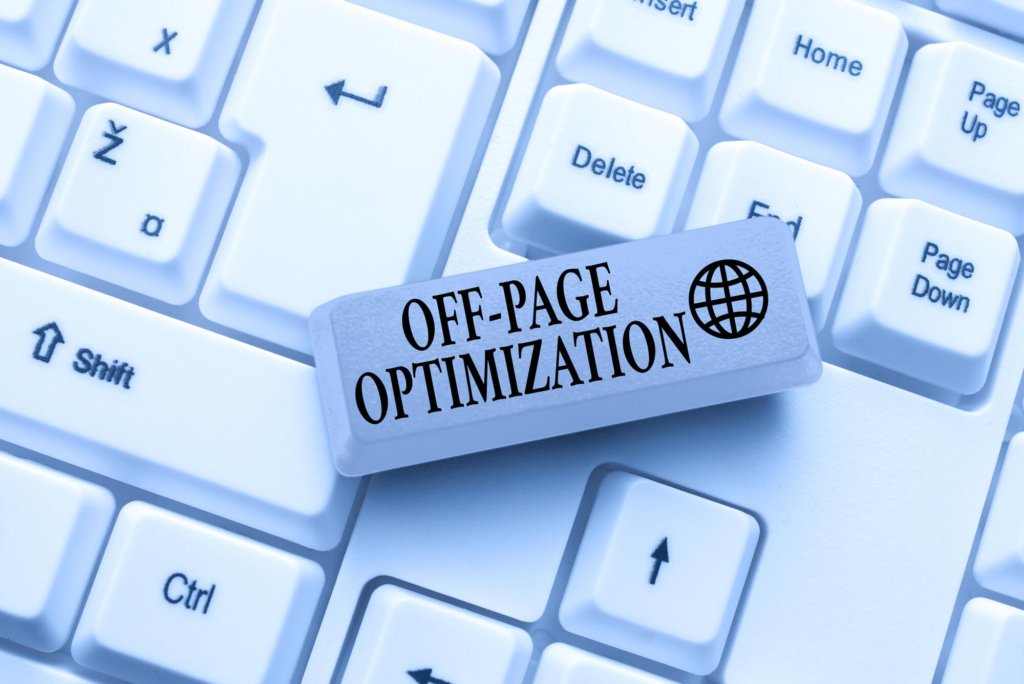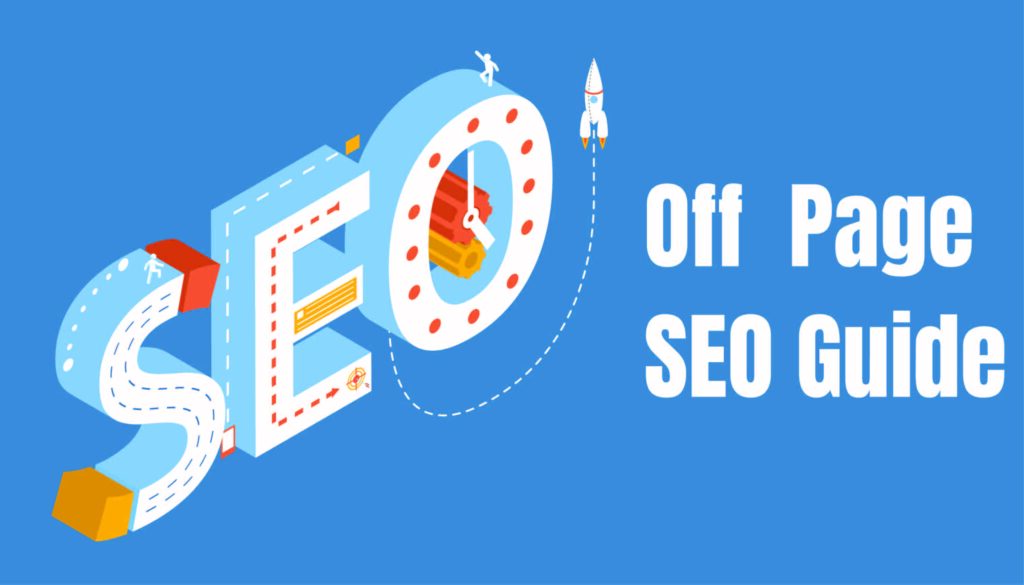Off-Page SEO
Off-page SEO is a crucial aspect of search engine optimization that involves activities outside your website to improve its visibility and authority. Unlike on-page SEO, which focuses on optimizing elements within your site, off-page SEO aims to enhance your site’s reputation and influence on the web. Here are some effective off-page SEO tips to help you increase your online authority and boost your search engine rankings.

1. Build High-Quality Backlinks
Backlinks, also known as inbound links, are links from other websites that point to your site. They are one of the most important factors in off-page SEO as they signal to search engines that your content is valuable and trustworthy. Here’s how to build high-quality backlinks:
Create Link-Worthy Content
Producing high-quality, informative, and engaging content is the foundation for attracting backlinks. Create content that others find valuable and want to reference, such as detailed guides, case studies, infographics, and original research.
Guest Blogging
Write guest posts for reputable websites in your niche. This not only helps you gain backlinks but also exposes your content to a wider audience. Ensure your guest posts are of high quality and provide value to the readers.
Outreach
Reach out to bloggers, influencers, and websites in your industry. Share your content with them and explain why it would be beneficial for their audience. Personalized outreach increases the chances of getting your content linked.
Broken Link Building
Find broken links on other websites and suggest your content as a replacement. Use tools like Ahrefs or Broken Link Checker to identify broken links. This helps the website owner fix an issue while earning you a valuable backlink.

2. Leverage Social Media
Social media platforms are powerful tools for off-page SEO. While social signals (likes, shares, comments) are not direct ranking factors, they can amplify your content’s reach and indirectly contribute to SEO efforts.
Share Your Content
Regularly share your content on social media platforms such as Facebook, Twitter, LinkedIn, and Instagram. Use engaging visuals, catchy headlines, and relevant hashtags to increase visibility and encourage sharing.
Engage with Your Audience
Interact with your followers by responding to comments, participating in discussions, and sharing user-generated content. Building a strong social media presence fosters community engagement and can drive traffic to your website.
Collaborate with Influencers
Partner with influencers in your industry to reach a broader audience. Influencers can help promote your content, products, or services, leading to increased exposure and potential backlinks.

3. Participate in Online Communities
Active participation in online communities can enhance your online authority and drive traffic to your site. Engage in forums, Q&A sites, and social media groups related to your niche.
Answer Questions on Quora and Reddit
Provide helpful answers to questions on platforms like Quora and Reddit. Include links to your content when relevant and valuable to the discussion. This not only positions you as an expert but also drives traffic to your site.
Join Industry-Specific Forums
Participate in industry-specific forums and discussion boards. Share your knowledge, answer questions, and provide valuable insights. Including a link to your website in your forum signature or profile can generate traffic and potential backlinks.
4. Engage in Content Marketing
Content marketing is a strategic approach to creating and distributing valuable content to attract and engage your target audience. Effective content marketing can enhance your online authority and support your off-page SEO efforts.
Blogging
Maintain an active blog on your website and publish high-quality, informative content regularly. Blogging helps establish your expertise, provides value to your audience, and creates opportunities for earning backlinks.
Infographics and Visual Content
Create visually appealing content such as infographics, videos, and slide decks. Visual content is highly shareable and can attract backlinks from other websites.
Content Syndication
Syndicate your content on platforms like Medium, LinkedIn Pulse, and industry-specific sites. Content syndication increases your content’s reach and can drive traffic back to your website.

5. Online Reviews and Reputation Management
Online reviews and reputation management are critical for building trust and authority. Positive reviews and a strong online reputation can influence potential customers and enhance your SEO efforts.
Encourage Customer Reviews
Ask your customers to leave reviews on platforms like Google My Business, Yelp, and industry-specific review sites. Positive reviews can boost your credibility and attract more visitors.
Monitor and Respond to Reviews
Regularly monitor your online reviews and respond promptly. Address negative reviews professionally and try to resolve issues. Positive engagement with reviews can enhance your online reputation.
6. Utilize Influencer Marketing
Influencer marketing involves collaborating with influencers to promote your content, products, or services. Influencers have a significant following and can amplify your reach.
Identify Relevant Influencers
Find influencers in your niche who have a substantial following and align with your brand values. Tools like Buzz Sumo and Follower wonk can help identify suitable influencers.
Build Relationships
Establish genuine relationships with influencers by engaging with their content, sharing their posts, and providing value. Once a relationship is built, propose collaboration opportunities.
Create Collaborative Content
Partner with influencers to create content such as guest blog posts, co-authored articles, or social media takeovers. Collaborative content can attract a broader audience and generate backlinks.

7. Leverage Local SEO
Local SEO focuses on optimizing your online presence to attract local customers. It is particularly important for businesses with a physical location or those serving specific geographic areas.
Optimize Google My Business
Claim and optimize your Google My Business (GMB) listing. Ensure your business information is accurate and complete, including your address, phone number, hours of operation, and services offered. Regularly update your GMB profile with posts, photos, and customer reviews.
Local Citations
Build local citations by listing your business on local directories and review sites. Consistent NAP (Name, Address, Phone number) information across all listings is crucial for local SEO.
Get Local Backlinks
Seek backlinks from local websites, blogs, news outlets, and industry-specific directories. Local backlinks can enhance your local SEO efforts and improve your online authority.

Conclusion
Off-page SEO is an essential component of a successful SEO strategy. By building high-quality backlinks, leveraging social media, participating in online communities, engaging in content marketing, managing online reviews, utilizing influencer marketing, and focusing on local SEO, you can increase your online authority and improve your search engine rankings. Remember, off-page SEO is an ongoing process that requires consistent effort and strategic planning. Stay updated with the latest trends and best practices to maintain and enhance your online presence.


Pingback: What is an off-page SEO? | Abdullah SEO Tips